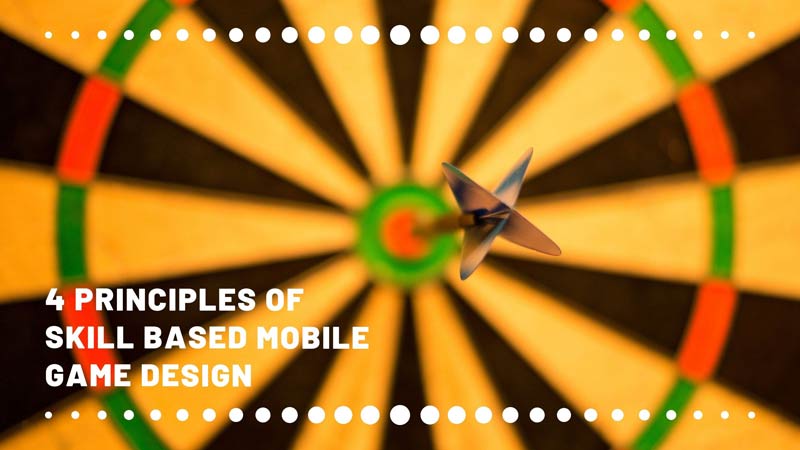4 Principles of Skill based Mobile Game Design

Want to build your very first mobile game? I wager you have a fantastic idea and can’t wait to begin. But making a mobile game is a lot more than only using a good idea and the capability to code it. You’ve got to think through the gameplay, the target audience, and also precisely what you need to build.
Here, we’ll dip into the four principles of game style. Also, look at a recent post on how to pick the right framework to make mobile game design a good deal quicker and more comfortable.
1. Keep it simple
To get your idea manageable, you should start by getting it down on paper. Nobody builds a house without a blueprint, and you also shouldn’t attempt to earn a mobile game without a solid plan. This could be as straight forward as a task list with everything you want to do or something more specific, like a document outlining all the details. In any event, the overall game design process starts with a blank page. Let’s talk about how you can fill it all in.
2. Document your idea
In Traditional cellular game development, you’re invited to earn a game design document (GDD). That is generally an extensive record outlining every aspect of the game. Oahu is the blueprint that the remaining part of the group follows for the build-out.
If you are a single developer, this is overkill. You can very quickly boil down a GDD to a single list of tasks having a few introductory paragraphs and any collateral or testimonials, like screenshots and links to other games or game mechanics.
It is your responsibility to get the ideal approach to document your idea; however, the further you sort out the crucial points, the higher the project will likely be. It’s “inexpensive” to sort your thoughts either written down or in your head before starting coding. But when you start the development procedure and need to return straight back, you amass what’s known as technical debt, which can get your code, even worse, kill your productivity altogether by forcing one always to hack together new solutions or even refactor code you’ve already written.
3. Get Feedbacks
The most Significant Part of the documentation Process is sharing your idea with others and getting their feedback. I know you wish to safeguard your vision with your own life. However, the reality is that most people are beginning to desire that feedback from others.
We All start with the lofty objective of “building a game I wish to play with,” but the truth is that you are just one individual. To be successful, you need to attract larger markets. That’s not to imply you should place your game ideas online for everybody to see; however, look for a select number of trusted friends and conduct your aims by them.
You may discover that a few comments are hard to choose, and some aren’t helpful in any respect. However, this can be an essential experience in and of itself. Having the capability to filter what can make your cellular match better is a crucial skill.
4. Play more matches
Outside of documenting your thoughts, maybe the most important thing is to begin playing games lot of games. As a match manufacturer, your hobby should be playing games, shooting them apart, and determining what makes them tick.
You should keep a notebook of all the games you play and even the people you see online. Use any Note-taking app. The idea is to write what you enjoy and what you don’t, and some of the significant takeaways from playing it. Also include Screenshots of art styles you want and copy links to any security Advice on games that will help with your ideas after. Since you never know how the game will inspire one personally, it’s essential to be as Detail by Detail as you can. Skill-based games is one of the top mobile games service provider in this era. Skillbasedgames is the best platform to develop skill-based games, having vast experience in real money and skill-based game development.




One Comment